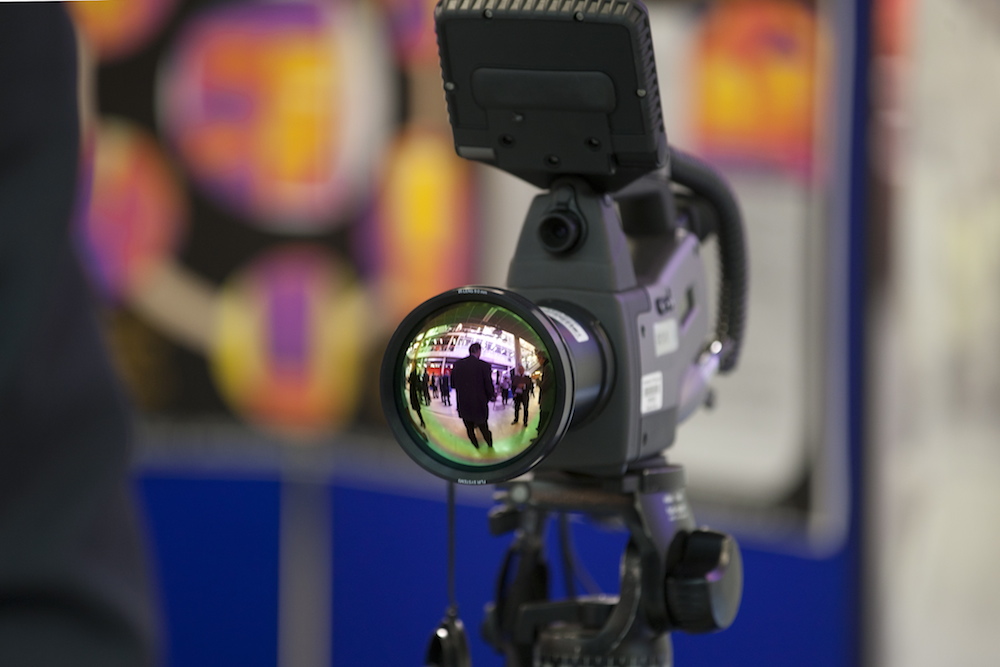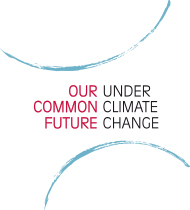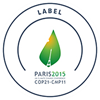�
Our Common Future Under Climate Change
International Scientific Conference 7-10 JULY 2015 Paris, France

Top-of-the-range thermal camera (copyright: Plymouth University)
Making heat visible: Thermal images motivate household energy efficiency
201506-30
By Our Common Future
People are more likely to respond to the issue of climate change if they can see it with their own eyes, research on thermal imaging has found.�
Sabine Pahl and colleagues investigated ways to motivate people to improve the energy efficiency of their homes. They tried three strategies, including a home energy audit, a text report about energy efficiency and taking photos with a thermal imaging camera.�
�We found across several studies that thermal images of their own homes are really engaging to householders,� says Dr Pahl, Associate Professor in Psychology at the University of Plymouth who will be presenting at the Our Common Future Under Climate Change conference in Paris from 7-10 July.
�They�re very keen to have the images taken, they show great interest in the thermographer�s approach, they share the reports we send with others around them,� she says. �
�This is against a context of general disinterest in energy-saving communications. For example two per cent or less is a typical response rate to energy companies� campaigns.
�In our research we�ve found evidence that householders who received a thermal imaging report had lower energy bills a year later and had done more energy-saving actions such as draught-proofing.�
Her team�s results show that householders shown thermal images of their homes were up to five times more likely to install draught-proofing than a control group.�
Dr Pahl says psychology provides clues to why such a straight-forward approach seems to be so successful.
�Research shows that images attract attention, evoke emotions, facilitate memory, and trigger action through activating goals,� Dr Pahl says.�
�Vivid information is linked to the generation of mental images. These mental representations are easily retrieved from memory and facilitate the processing of any message aligned with it... Mental images can trigger action-related goals after being activated through internal or external cues.��
Psychological research plays a key role in our understanding of climate change. From the psychology of why some people deny the existence of climate change against all rational evidence, to understanding how to frame the questions of equity and morality to the broader public, social and individual psychological studies play a part.�
As Dr Pahl puts it, �Human decisions and behaviour are the critical cause of climate change, and understanding them is crucial to the success of any solutions proposed.��
She says human minds have evolved to deal with immediate, local, linear, visible, causal relationships, �think of our typical ancestor hunting and foraging with his or her main worry being the predator around the corner�.
Both energy use and climate change are abstract, global concepts. Making a connection between these two difficult concepts is something our brains seem ill-equipped to deal with.�
In addition, energy use is not the primary purpose of human actions. �We make a cup of tea because we�re thirsty not because we want to use energy. We heat our home because we want to be comfortable. Energy use is secondary to our goals.�
But her team�s research on thermal imaging offers hope that psychology can work with technology to provide the tools to engage people with two intersecting, intangible, indirect problems.�
�By engaging people with the topic of energy on their own terms about things they value - their home - with a powerful technology that makes the invisible visible, thermal imaging has great potential to motivate a change in habits and improve the fabric of our homes.�
This insight may provide vital clues to engaging a disengaged population on improving the fabric of our planetary home too.�
This is part of a blog series profiling climate scientists, economists, social scientists and civil society members who are presenting and discussing innovative climate science at Our Common Future. For more follow and #CFCC15 on Twitter.



